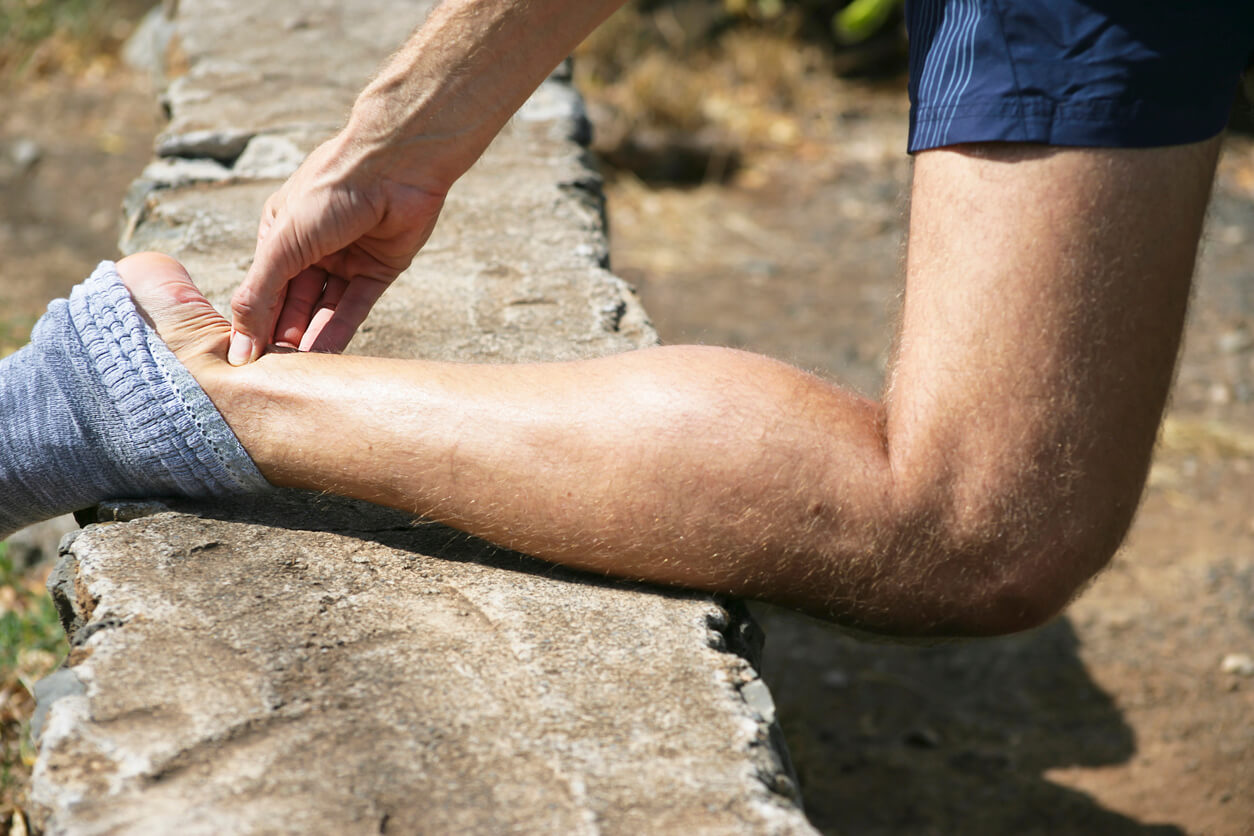Although the main structure of your body consists of your skeletal and muscular systems, you also have tissues that keep everything connected and stable:
- Ligaments attach bones to other bones
- Tendons attach muscles to bones
The largest tendon in the body is the Achilles tendon, which attaches the calf muscle to the heel bone and allows you to perform activities where you lift your heel off the ground, including walking and running, climbing stairs, jumping, and standing on your tiptoes.
Though tendons and ligaments are strong and flexible, they can be damaged due to overuse, strain, an injury, or even certain illnesses.
What Are the Causes and Symptoms of an Achilles Tendon Rupture?
There are a few different conditions that can affect the Achilles tendon:
- Tendonitis is a common condition that usually includes pain and tenderness in the heel.
- Tendinosis, which sounds similar to tendinitis, occurs when the tendon is not just tender, but has started to degenerate.
- Retrocalcaneobursitis, also known simply as bursitis, occurs when the small cushioning sac (retrocalcaneal bursa) between the heel bone and the Achilles tendon becomes inflamed.
- Achilles tendon rupture, also known as an Achilles tear, is a severe injury where the tendon is torn off.
Situations that put you at greater risk of an Achilles tendon rupture include:
- Sudden movements — running, jumping, or cutting — when the tendon hasn’t been properly stretched
- Stress on the tendon while you already have tendonitis
- Certain foot conditions
- Some kinds of diseases, such as gout and arthritis
- A family history of Achilles tendon rupture
While there are some conditions that you’ll acquire without noticing any symptoms, an Achilles tendon rupture presents symptoms you will likely notice immediately:
- A popping or snapping sound the moment the injury occurs
- Pain (sometimes severe) in the heel and calf
- Swelling in the heel
- An inability to bend your foot downward, stand on the toes of the affected leg, and trouble pushing off that leg when walking
How to Prevent an Achilles Tendon Rupture
Treating an Achilles tendon rupture will likely involve staying off the affected leg (meaning you’ll need crutches and a support boot) and rehabilitation, in addition to possible surgery.
Fortunately, there are some steps you can take to reduce the risk of an Achilles tendon rupture, especially if you plan to participate in activities that can put extra stress on the tendon.
- Strengthen and stretch the calf muscle. Strong and limber muscles are in better condition to handle stress, and even athletes and weightlifters are cautioned to “Don’t skip leg day.” Stronger leg muscles not only will help prepare your achilles tendon for additional stress and pressure, but will provide greater stability and balance, which will also make you less susceptible to injury. You don’t need a gym or even weights (though you could use them if you wish). You can find simple calf stretches online, including videos to make sure you’re doing them correctly. Make sure you perform them slowly, until you feel a stretch but not pain, and don’t bounce
- Go slow. Just as you don’t push the car’s gas pedal to the floor as soon as the light turns green, you want to gradually increase the intensity of your activity.
- Switch it up! Performing different kinds of exercises will not only prevent boredom and routine, but will help reduce the impact on different parts of your muscles, especially if you do a mix of high-impact (running) and low-impact (swimming) exercises.
- Wear supportive shoes (and other equipment). Many injuries can be traced to footwear that either doesn’t fit right or doesn’t provide the kind of support you need, considering how many steps you take each day. And when you’re participating in a sport, make sure you’re wearing the right kind of shoes for not just the support, but also the traction (whether it’s a basketball court, a track, or a potentially muddy field) the playing area requires.
Contact Our NJ Orthopedic Foot Surgeon About Treating Achilles Tendon Conditions
Schedule an appointment with our NJ orthopedic foot surgeon today about diagnosing and treating foot conditions including Achilles tendon rupture.
